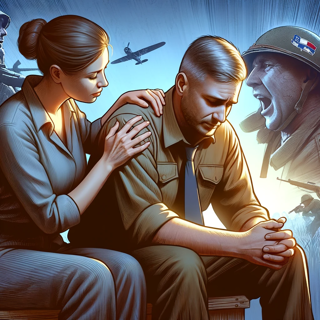January 2024
Embark on a transformative journey through time and culture in 'Mental Health Across Generations: Learning from the Past and Navigating the Present' by Monica Granlove. This captivating article delves into the intricate tapestry of mental health, tracing its evolution from the shadowed halls of WWII-era asylums to the groundbreaking introduction of antipsychotic medications in the 1950s, and into the diverse, culturally-rich present. 'Mental Health Across Generations' is not just an article; it's an invitation to understand the complexities of mental health through a lens of empathy, history, and diverse cultural perspectives. It's a call to recognize the past's echoes in our present and to embrace a future where mental health is understood, respected, and nurtured across all walks of life. Prepare to be enlightened, moved, and inspired.
Last updated 20 months ago
Will publish on 06/07/2026
Mental Health Across Generations: Learning from the Past and Navigating the Present
By Monica Granlove
Mental health, an intricate facet of the human experience, unfolds across generations as a complex tapestry woven with the threads of history, literature, and lived experiences. In this exploration, we delve into the depths of generational mental health, drawing profound insights from historical narratives and contemporary stories, including those found in the Timeless Legacy novels. By unraveling the multifaceted nature of mental well-being, traverse the labyrinth of human consciousness and glean lessons for navigating the intricate challenges of our present.
Unraveling the Threads of Mental Health in Timeless Legacy
The characters in Timeless Legacy serve as conduits for a deeper examination of the profound effects of war on mental health. Ilse's family in The Surgeon and the Soldier becomes a microcosm, a living testament to the enduring trauma inflicted by war. As we immerse ourselves in their narratives, we uncover the complexities of resilience and vulnerability, witnessing the transformation of vibrant souls into tormented figures. Wil, once a beacon of vitality, metamorphoses into a tormented soul, laying bare the insidious toll of war on the human psyche.
In The Electrician and The Seamstress mental scars etched by war manifest vividly in Bruno and Karla. Nightmares, panic attacks, and the pervasive weight of wartime experiences intricately illustrate the lasting impact of conflict on mental resilience. These narratives serve as mirrors reflecting the silent struggles faced by individuals across historical epochs, emphasizing the universality of the human condition.
The evolution of mental health treatment reflects a journey from misunderstanding and stigma to a growing awareness and acceptance. Historically, mental health issues were often misconceived as supernatural phenomena or moral failings. Treatments ranged from the barbaric, such as lobotomies and electroconvulsive therapy without anesthesia, to the ineffective and cruel, like confinement in asylums under inhumane conditions.
Historical Glimpses: Mental Health During World War I and II
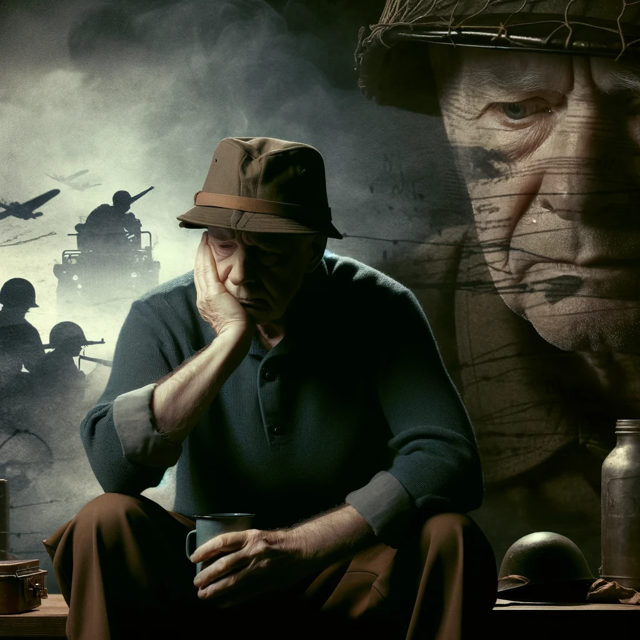
As we journey through the annals of history, we encounter stories of mental health during World War I, introducing the term "shell shock" as a desperate attempt to articulate the profound psychological toll on soldiers. The harsh conditions of trench warfare became crucibles of mental anguish, and the lack of understanding and resources for mental health care cast a shadow over an entire generation.
World War II ushered in a new chapter in the narrative of mental health. Soldiers grappling with combat stress, civilians facing unprecedented stressors, and the emergence of PTSD painted a complex picture. Advances in psychiatry and an evolving awareness of mental health dynamics shaped the post-war era, laying the groundwork for future endeavors.
Challenges and Advances (1939-1950)
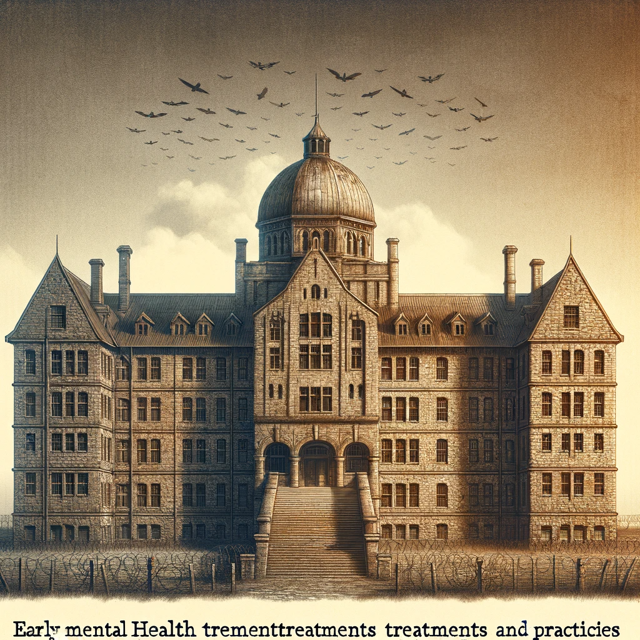
The aftermath of World War II posed new challenges and opportunities in the realm of mental health. Mass displacement, combat stress, and the reconstruction of societies influenced mental well-being. Advances in psychiatry, the medicalization of mental health, and a growing acknowledgment of the intricate interplay between psychological and societal factors marked this period.
However, social stigma persisted, creating barriers to progress. Institutionalization, with its varied conditions, and disparities in access to care became evident. The post-war period witnessed a symphony of socioeconomic factors, cultural influences, and the enduring impact of mass trauma on mental health.
The prevalence of PTSD among veterans necessitated a deeper understanding of mental health. This period saw the advent of psychoanalysis and the development of the first antipsychotic medications in the 1950s, revolutionizing treatment by enabling patients to manage symptoms with medication rather than institutionalization.
Mental Health Today: A Tapestry of Complexity
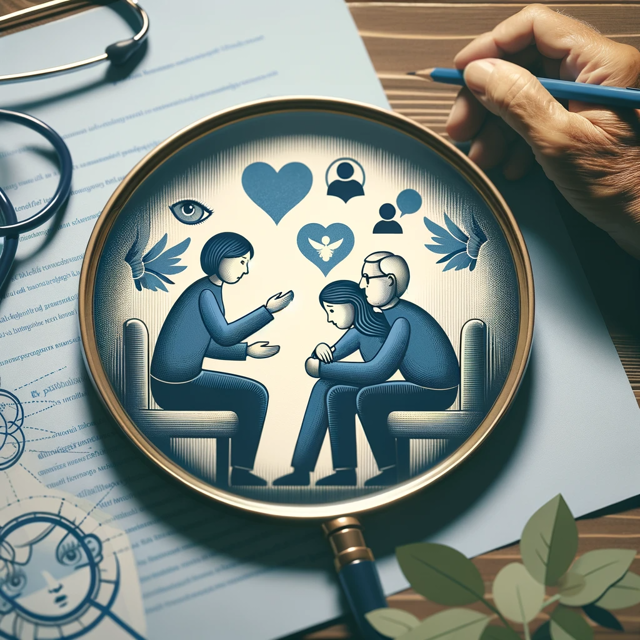
In the contemporary landscape, mental health remains a mosaic of challenges and triumphs. Increased awareness, diverse treatment modalities, and technological advancements have metamorphosed mental health care. Yet, stigma, disparities in access, and the repercussions of modern lifestyles persist as shadows on the canvas of well-being.
In the late 20th and early 21st centuries, the advent of cognitive-behavioral therapy (CBT), a focus on evidence-based treatment, and the development of selective serotonin reuptake inhibitors (SSRIs) further transformed the mental health landscape. These advances represented a move towards more humane, patient-centered care, emphasizing the individual's capacity for resilience and recovery.
Recognizing the nuances of a mental health crisis is paramount for early intervention. Families emerge as crucial pillars in this narrative, offering support, connecting individuals with professionals, and nurturing open communication. Real-life stories underscore the multifaceted nature of mental well-being.
Today, the integration of digital technology in mental health care, such as teletherapy and mobile health apps, reflects an ongoing evolution that prioritizes accessibility and personalized treatment. The growing recognition of mental health's importance has spurred global efforts to remove stigma, although challenges in access and disparities in mental health care remain prevalent issues
Where to Seek Compassionate Anchors
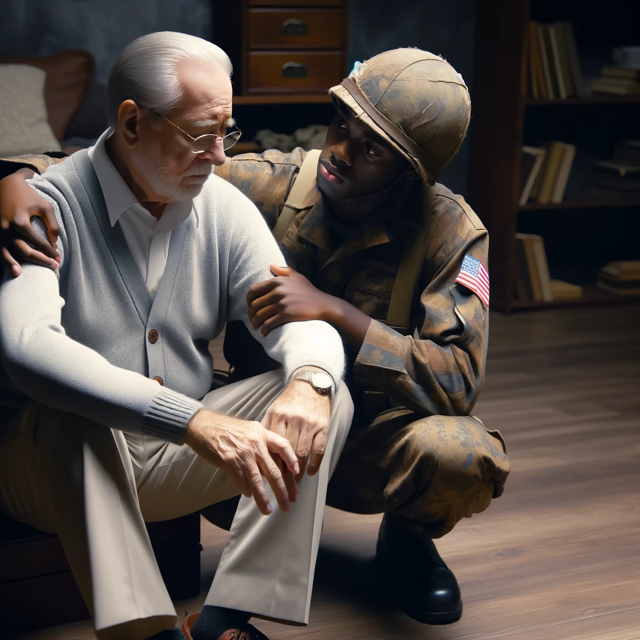
Embarking on a quest for mental health support involves navigating a myriad of options. From engaging with mental health professionals and crisis hotlines to exploring local resources and online platforms, the path to well-being varies. Seeking help becomes an act of strength, and individuals are encouraged to reach out to therapists, psychiatrists, or support groups.
Conclusion: Navigating the Profound Depths
While the Western perspective has dominated much of the historical narrative on mental health, diverse cultural approaches offer a rich tapestry of understanding and treatment. In many Indigenous cultures, for instance, mental health is often viewed holistically, encompassing physical, emotional, spiritual, and community well-being. Healing practices may involve traditional ceremonies, herbal medicines, and community support, emphasizing a deep connection with nature and ancestral wisdom.

In Eastern philosophies, practices like meditation, mindfulness, and yoga have long been integral to mental well-being. These practices, rooted in ancient traditions such as Buddhism and Hinduism, focus on achieving balance and inner peace, and have gained global recognition for their effectiveness in reducing stress and improving mental health.
African and Afro-Caribbean communities often approach mental health through the lens of community and familial support. The concept of 'Ubuntu,' prevalent in many African societies, which translates to 'I am because we are,' highlights the importance of community and interconnectedness in individual well-being.
Such diverse perspectives remind us that understanding and treating mental health is not a one-size-fits-all endeavor. Integrating these varied cultural approaches with contemporary psychiatric practices can offer more inclusive and effective mental health care, honoring the unique experiences and needs of individuals from all backgrounds.
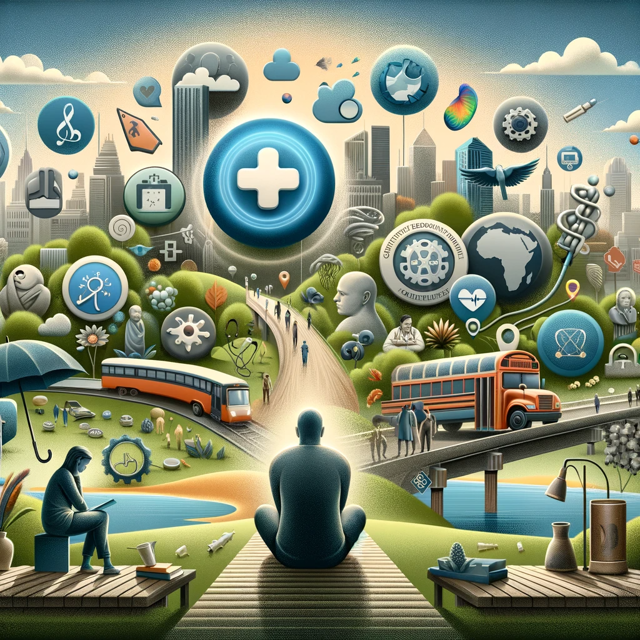
Mental health, a journey through time and space, requires a nuanced, empathetic, and comprehensive approach. Learning from the echoes of the past, understanding the profound impact of war on the human psyche, and fostering open dialogue converge to shape a collective effort to enhance well-being across generations. As we navigate the intricate depths of mental health today, compassion, awareness, and proactive intervention emerge as beacons illuminating the path to a resilient and supportive society.
As the author of this exploration into mental health, I extend a heartfelt message of support to all those navigating their own mental health journeys. Remember, you are not alone in this journey. Reaching out to friends, family, and trusted community members can be a powerful step towards healing and resilience. Embrace the strength found in shared experiences and the comfort of compassionate connections. I also encourage you to explore the solace that can be found in spirituality, art, nature, or whatever brings you personal peace and reflection. Let these avenues be sources of light and hope, guiding you towards positive outcomes. Mental health is not just an individual struggle; it's a shared human experience. By fostering a culture of understanding, empathy, and open communication, we collectively create a brighter, more supportive future for all. May this article not just be a source of information, but also an inspiration for anyone seeking to find balance, healing, and joy in their mental health journey.
List of places for support1:
- United States:Call 1-800-273-8255 or text "HOME" to 741741 to connect with a trained crisis counselor via text messaging. (available 24/7)
- United Kingdom:Call 116 123 (available 24/7) for emotional support and someone to talk to.
- Germany:0800 111 0 111 or 0800 111 0 222 (available 24/7) for confidential emotional support.
- France:01 45 39 40 00 (available 24/7) for support and assistance.
- Spain:717 003 717 for emotional support and crisis intervention.
- Italy:199 284 284 for emotional support and listening.
- Sweden:90101 (available 24/7) for support and counseling.
- Netherlands:113 or 0800-0113 (available 24/7) for crisis intervention and suicide prevention.
